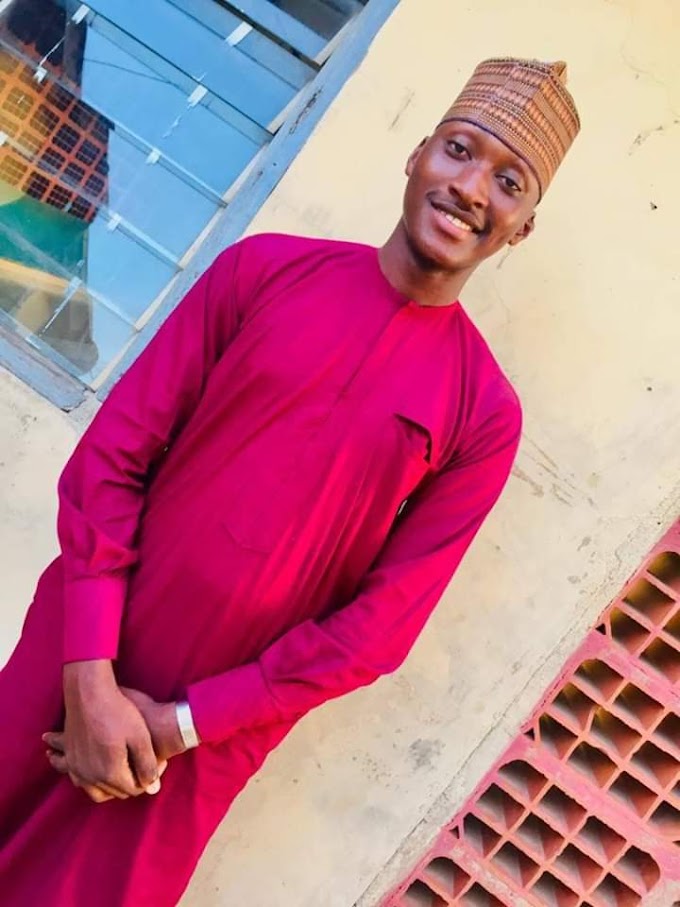THE TABLE BEHIND THE NAME OF THE CITY OF OGBOMOSO
The history of the origin of the name Ogbomoso refers to two versions of the story of Ogunlola's murder.
One version of the story was that passersby on a trading mission passed through his hut, and in the ensuing event Ogunlola took sides and killed an Ijesa man.
The other story is that Ogunlola's wife, Lorungbekun, was in debt to an Ijesa peddler, and the creditor approached Ogunlola's wife in her husband's camp to demand payment of the money owed to her. Ogunlola's wife seemed unable to recover the money and so the creditor had to be pacified in Ogunlola's camp, and Ogunlola pleaded with him several times, but the creditor never accepted, and eventually a between Ijesa's creditor and Ogunlola, and Ogunlola forcibly held his hand to persuade him, but unfortunately, Ogunlola forgot that the poisoned ring was in his hand and did not remove it before holding his hand, and Ijesa's wandering creditor fell to the ground and died on the spot, the incident was reported to Olugbon as was the custom at that time, who was the liaison officer to Alafin in the ancient Oyo Empire, who in turn sent Ogunlola to Oyo-Ile, the then capital of Oyo-Ile to face the outcome since he had decided on the murder case.
While Ogunlola was serving a prison sentence in Oyo-Ile, the capital of the ancient Oyo Empire, he heard about the attack by Ibarba's soldiers under the command of a man named Elemosho who was torturing, terrorizing, and disrupting the free flow of trade in the Oyo-Ile territory. Ogunlola appealed to Alafin, to let him out of prison to fight Elemosho. After much persuasion, this ingenuity amazed Alafin Ajagbo (1600-1659 AD) who agreed to forgive Ogunlola for his crime when he got rid of the troublesome Elemosho.
Elemosho was a powerful and brave warrior who fought with sword and arrows.
When Ogunlola was released from prison, he was intercepted at Elemosho's camp. However, it took him a few days to study Elemosho's tactics.
One night, Ogunlola sneaked into Elemosho's camp and shot him with his bow and arrow. Afterward, Ogunlola killed Elemosho, cut off his head and took it in a tray to Alafin, who was very pleased with Ogunlola's courage and enthusiasm.
Alafin gave Ogunlola freedom until he asked him to stay in the capital, Oyo-Ile, to live in glory and splendor instead of returning to his settlement, but Ogunlola refused, saying to Alafin "Eje ki ma se ohun" which means "let me stay there in my village". This is where the title "Sohun", the traditional head of Ogbomoso, is derived from.
Recognizing Ogunlola's bravery and rewarding him for his heroism and service, Alafin ordered a land grant for Ogunlola, and Ogunlola chose his original settlement for the grant, thus Ogunlola received a land grant directly from Alafin and began dealing directly with Alafin, rather than dealing with Alafin through Olugbon.
Ogunlola returned to his village and became the paramount chief with the title of Sohun, he became the first Sohun of his village, and upon his return to his small village under the Ajagbon tree, with the sword of freedom given to him by Alafin, Ogunlola's reputation rose to such an extent that Olugbon, Alapa and Aresa began to claim him as their own, and even the other four settlers began to expand their settlements towards Ogunlola's settlement.
Other historians attribute the derivation of the name Sohun to the village of Iresa when Aresa, the chief of that village, was asked when his daughter's son would be brought from Okin-Apa, and he replied: "Iya ati omo, ki won ma Sohun," meaning that the mother and child are allowed to settle there.
The most common and widely accepted interpretation centers around the beheading of Elemosho by Ogunlola, from which the name of Ogunlola's settlement was later derived as "Ibudo Eyi to Gbori Elemosho," which literally means "the residence of the person who bore the head of Elemosho" This was later shortened to "Ogbori Elemosho", and Ogbomoso is what he is called to this day. Thus, Ogbomoso got its name from Ogunlola's bravery.
The town of Ogbomoso later rose from the status of a village to a powerful city because of the role it later played in the history of Yoruba land.
#Excerpts from a brief history of Ogbomoso
By J.M. Adeoye







0 Comments